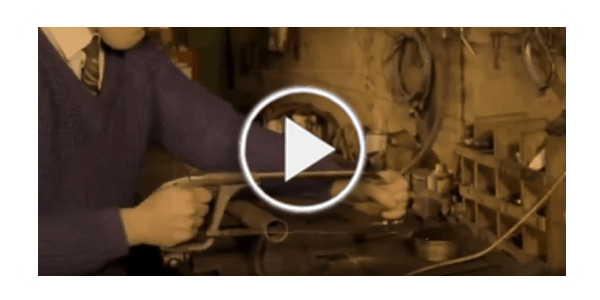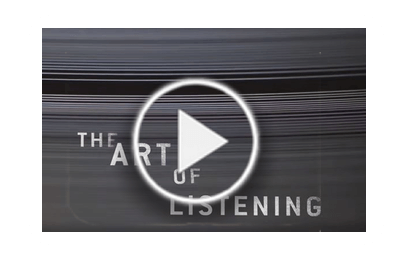TOOL 3 – SURROUNDING

IF YOUR SURROUNDING DOES NOT LOOK LIKE HOME IT’S LOGICAL YOU START LOOKING FOR THE EXIT
What would you do when somebody stops you and tells you “you may not leave, this is your home you live here”.
I live here? You are crazy, this is not my home! Do you tell him to mind his own business and if not you settle things your way?
This is a big problem in the dementia care. Not recognizing your surrounding, not feeling at home because the dementia fog has relocated your home into the past.
You can imagine that this causes a lot of unrest by people with dementia and that the runaway urge cause a mental and time burden for carers.
THE SOLUTION FOR NOT FEELING AT HOME
Creating a recognizable environment which give home feelings and rest in the chaotic brain with dementia. Remember how your home is your shelter “There is no place like home”
The benefits, lesser wandering and runaway urge, lesser anger, violence and frustrations. Happy carers and more happiness by those with dementia.
How to realize?
By placing recognizable furniture, photos, tools and other objects in the surrounding of a person with dementia.
On this page I show you how you easily can create a home feeling for a person with dementia.
HOW TO FIND THE RIGHT STUFF?
Go with the person with dementia to a thrift shop or a flea market. Observe which objects the person recognized, make photos of the objects or even better buy them.
When it not possible to go outside, turn your phone or tablet into a flea market. Search in Google with “daily life in the 60’s in ……” Select images, there it is your own digital flea market.
How to find the right photos? Walk with the person with dementia through his photo albums, don’t say, look there is aunt Betty, or look a lovely picture of your husband.
The person with dementia will follow you and you don’t know if the person with dementia did recognizes the photo.
LET THE PERSON BE YOUR PHOTO GUIDE DON’T CHOOSE FOR THE PERSON!
EVERY PHOTO WHICH MAKES THE PERSON WITH DEMENTIA FEEL GOOD IS A GOOD PHOTO!
Not the photo’s the management, family or caregiver are liking. No, the photo’s the person with dementia likes that are the right photo’s!
Those and only those are the photos which can and will bring rest & peace in a confused brain with dementia.
Remember you not styling a room in the Ritz, but you try to give a person with dementia a home feeling.
When you got the right photos. Print them, for example on canvas and hang them on the wall.

HOME IS A SHELTER FROM STORMS ALL SORTS OF STORMS
John Doe

I AM NOT TALKING ABOUT POSTCARD SIZE PHOTOS
Think big, calculate the costs of tranquillizers, the time you spent finding a runaway or arguing over not to be allowed to leave?
Add these costs of a whole year up. I think you can order a wall size photo, you get my drift.
The photos can be given as a birthday present by the family. Giving home feelings to a person with dementia is the most wonderful birthday present you can give!
When somebody has a love for the sea or a passion for sailing or was a sailor all his life then bring the sea in his room by photo wallpaper. Think also of sea, sailing, motor, sonar, storm, seagulls.
You find many of these sounds on this site. When you have found a great playlist with sounds or you missing a sound tweet or mail me
THE SONGS BELOW HAVE A LONGING FOR HOME
I think you know these songs, listen to them, feel how strong the longing is for home.
We all need a shelter but when we get sick or old a shelter becomes very important.
If you know a great song with a longing for home and it’s not in the playlist “Home” on Spotify. Tweet or mail me the song I will add the song to the list.
THE 9 TO 5 TOOLS
Which tools or objects has the person with dementia used in his working years? Think about summer jobs, internships, working in the family business, volunteer work at associations and of course the first job.
Find out by using photo’s which tools the person with dementia recognizes. If possible put the tools in the room. You can also lay products which the person made, sell or work with in the room.
For example if a person has worked in a printing office making menu cards for the old liners, he can become very happy with a kind of typewriter he has worked on this whole life.
Other tools which were used in that time in a printing office can bring back memories and become beacons in the Dementie fog.
You hit the jackpot when you find a menu card which this man has made, but other menu cards can also bring back memories. Search the internet you can find nearly everything there. And dare to ask. People are often willing to help you with your queeste.
THE FOUNDED TOOLS AND OBJECTS CAN BECOME DAY-FILLING ACTIVITIES LIKE IN “THE TYPWRITER STORY”
THE TYPEWRITER STORY
On a flea market a nurse discovered an old typing machine, she remembers what I had told in the training about the 9 to 5 working tools.
Immediately she thought about Mrs. Peters who had been a secretary her whole life.
Without hesitation she bought the old typing machine for one Pound. At the moment she enters the room
[expander_maker id=”1″ more=”Read more” less=”Read less”]
Mrs. Peters came alive she greeted the typing machine as an old friend. In a world where most things were unrecognizable for Mrs. Peters, there came a subject, which she recognized and know so well.
During the next weeks Mrs. Peters flourished and became more and more alive. The nursing had to get papers and carbon papers because Mrs. Peters wanted to work.
The old typing machine was not only a beacon in the dementia fog for Mrs. Peters, it became also a day-filling activity. The cost? ONE POUND!


HOW FORMER HOUSEHOLD TOOLS TURN INTO BEACONS & ACTIVITIES
Seeing familiar household tools, which you know so well as you have used them thousands of times, can give you comfort and shelter when you have no idea where you are.
Picking them up distract you, memories coming up as you slowly start to use them. Being busy again, not feeling useless anymore, gives a kind of inner peace and a deep feeling of satisfaction.
You can easily realise this with recognizable tools from the past. Use Google, flea markets, second hands stores, books like “remember the 30,40,50,60 as your source of inspiration.
Dusters & hoovers, Shoe shine basket, Needle and thread plus a pile of clothing to repair, Silver & Copper to brush. Think about all the ordinary daily activities which the person with dementia has done in his early years and there a lots of them.
Find the one that connect and brings recognition and an activity in the present time.
MUSICAL SKILLS REMAINS 🎻
Musical skills will not be destroyed by the dementia. If a person has played a music instrument he or she can often still play that instrument.
One: Find out if the person has played an instrument. If so, lay that instrument in the room. Remember recognizable objects are beacons for those who are wandering in the dementia fog.
Two: Don’t ask or push the person to play. Just wait and see what happens.
MUSIC IN A CARE HOME
Incoming mail: Dear Ignar after your lecture I remember that my mother used to play transverse flute. Coming home I looked the flute up and took it along with my next visit.
My mother was sitting in the shared living room; I put the box with the transverse flute on the table by my mother and went away for coffee.
When I returned had my mother, who normally does nothing, opened the box, assembled the flute and was playing on it. She was beaming with pleasure and she totally went up in the music.
Dear Ignar, thank you so much for pointing out to me that musical skills are not being affected by dementia, you made my mother and me very happy, thank you.
The photo is made by Mark Seymour who documented the final years of his father’s, Ronnie Seymour, following a diagnosis of dementia. On the site of Mark Seymour you find the whole photo reportage.


CHANGE HOBBIES FROM THEN INTO ACTIVITIES FOR TODAY
What are and were the person’s hobbies? Are they still present in the brain? Try it out with photos or movies from YouTube.
Think about: Model building, Macramé, Sculpture, Reading, Painting, Woodworking, Quilting, Pottery, Coin or Stamp Collecting, etc……ask family, old friends if they know what the person with dementia hobbies are and were.
Even when a person is not able to work with the tools anymore, they can give comfort by being lighthouses in the dementia fog. Don’t forget the hobbies from the younger years!
TOOL 3 IN A NUTSHELL
1- A favourable environment produces favourable behaviour
2- Create a surrounding where the person with dementia feels at home
3- Find together with the person with dementia recognizable objects
4- Decorate the room with the founded furniture, photos & objects
5- Search for 9 to 5 & household tools, musical skills & hobby beacons
6- Some tools can become an activity, but don’t push it
7- Involve the family in the search for the right objects
8- Everything you do for a person with dementia is coming back to you

Contact me for a reading or
for speaking at your congress
Wanna stay informed?
Subscribe on Blog & More









